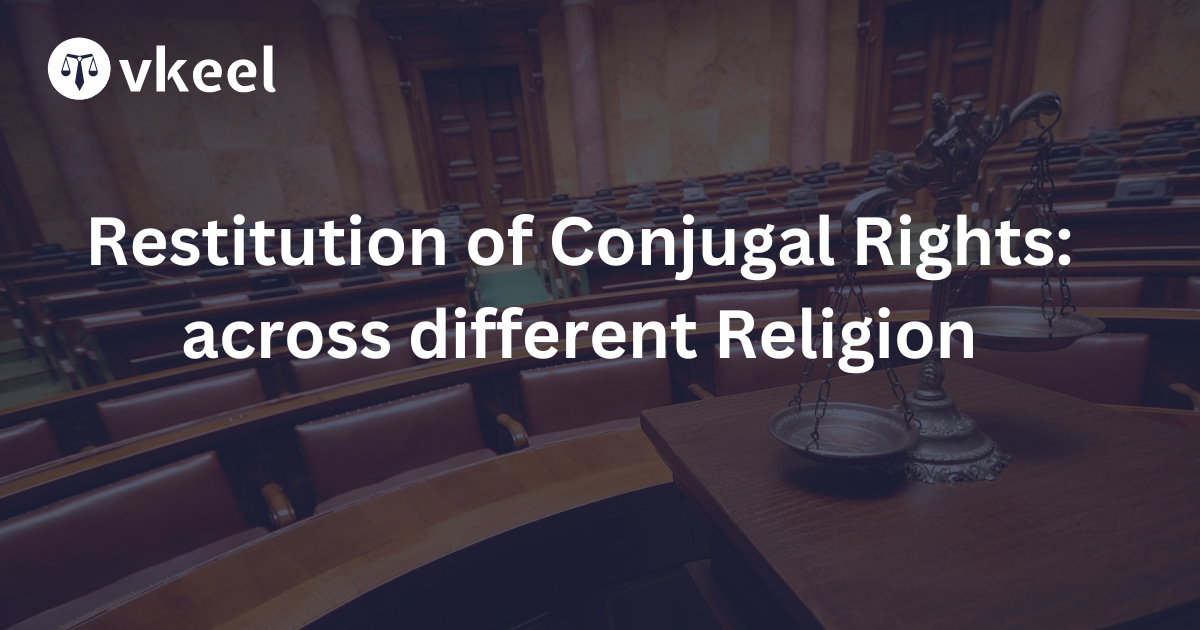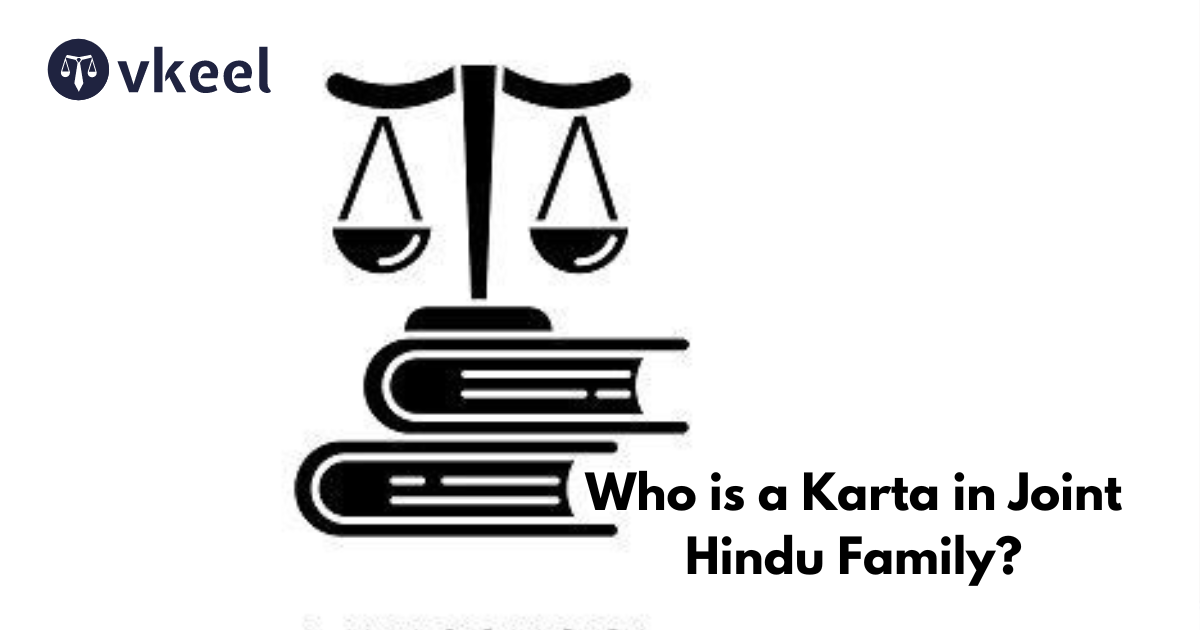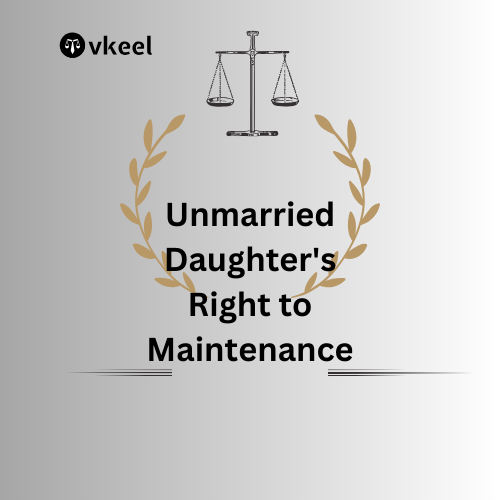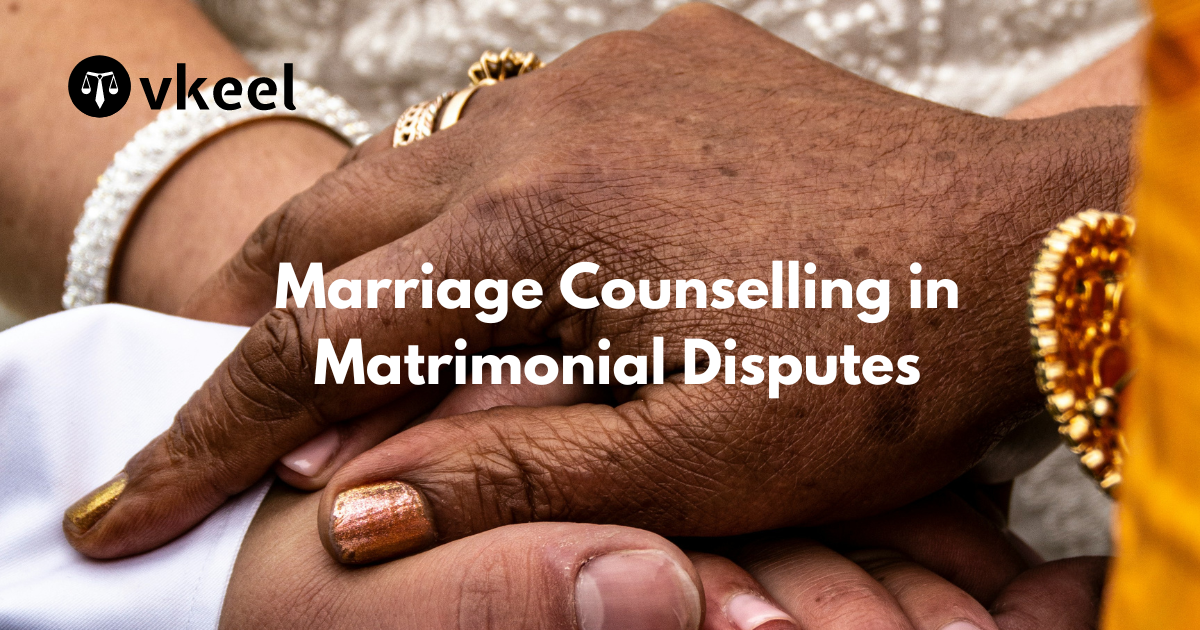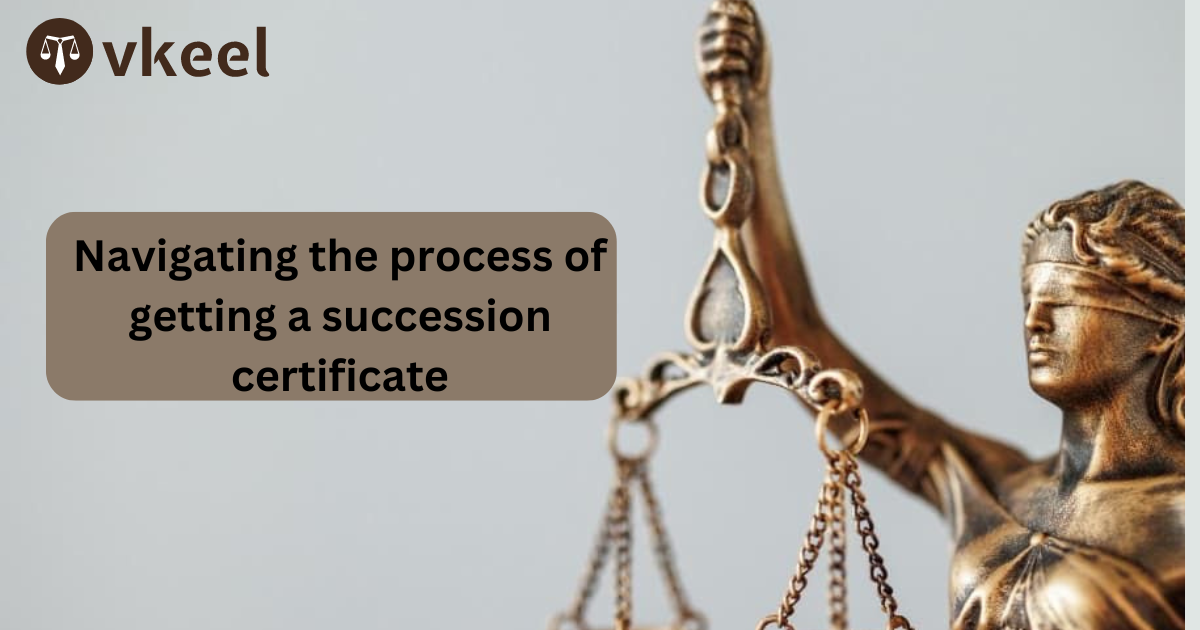Restitution of Conjugal rights:Procedure Across Different Religions
By Himanshu Kumar
Table of Contents
- Introduction
- Restitution of Conjugal Rights Procedure under Hindu Law
- Restitution of Conjugal Rights Procedure under Islamic law
- Restitution of Conjugal Rights Procedure under Christian law
- Restitution of Conjugal Rights Procedure under Parsi law
- Recent Developments and Amendments
- Comparative Analysis
- Conclusion
Introduction
In various legal systems across different religions, the concept of restitution of conjugal rights (RoCR) reflects a unique perspectives ,procedures , and applications. The restitution of conjugal rights allows a spouse for giving a petition in the court for the return of marital cohabitation if it has been withdrawn without reasonable grounds. This legal remedy, often associated with family law , is approached differently based on religious laws and cultural contexts . In this article, we will explore the procedures of RoCR under major religions, incorporating recent law and legislative amendments where applicable.
The procedural aspects of RCR can vary significantly across different legal systems influenced by Hinduism, Islam,, Christianity, and other religions.Restitution of conjugal rights is a legal concept deeply entrenched in various religions and cultural traditions . It allows spouse to seek judicial intervention for the restoration of martial cohabitation when the other spouse has unjustifiably withdrawn from it.
After marriage the husband is entitled to the society of his wife and the wife to the society of her husband . A cause of action , therefore, arises when one of the parties to the marriage withdraws from the society of the other. Section 9 of the Hindu Marriage Act, 1955 deals with the subject of the restitution of conjugal rights . This right generally arises when either spouse has left the society of another without any reasonable cause .
Basically, this article will provide the in-depth analysis of the RCR procedure across different religious legal systems, namely Hinduism, Islam ,Christianity and Parsi.
Definition,Meaning and Characteristics of Restitution of Conjugal Rights
Restitution of Conjugal Rights often referred to as restoration of marital rights, is a legal remedy aimed at restoring the marital relationship between spouses who have separated without a valid reason.
The key characteristics of Restitution of Conjugal Rights include:
Legal Right
RCR is recognized as a legal right under certain family laws , allowing a spouse to seek judicial intervention for the restoration of conjugal rights .
Non-Divorce Remedy
Unlike divorce or separation, RCR does not terminate the marital relationship. instead , it seeks to compel the erring spouse to resume the cohabitation.
Discretionary Relief
Courts have discretion in granting RCR based on the facts and circumstances of each case, including the conduct of the parties and the likelihood of reconciliation.
Limited Grounds
RCR can only be sought when withdrawal form the cohabitation by one spouse is without reasonable justification.
Restitution of Conjugal Rights Procedure under Hindu Law
In Hindu law, the concept of RoCR is governed by the Hindu Marriage Act,1955.The Act allows a spouse to move the court for restitution if the other party has withdrawn from cohabitation without reasonable excuse.
In Hinduism, marriage is considered a sacrament, and the Hindu Marriage Act,1955,governs martial relationships. Section 9 of the Act provides of RCR, allowing either spouse to petition the court for the restitution of conjugal rights. The procedure typically involves:
1. Filing a petition in the family court specifying the grounds for seeking RCR.
2. Serving a notice to the respondent spouse.
3. Conciliation and counselling by the court t facilitate reconciliation.
4. Adjudication by the court based on evidence and arguments presented by both the parties.
The Hindu Marriage Act has undergone amendments to align with contemporary societal norms and gender equality principles. Recent amendments in Hindu Law, such as the introduction of compulsory mediation and counselling before granting RCR, aim to promote amicable resolution of martial disputes.
CASE LAW
Suman Singh vs Sanjay Singh (2017)
Under this case , the court emphasize the importance of genuine efforts towards reconciliation before granting RCR.
Samar Ghosh vs Jaya Ghosh (2007)
Under this case , the Supreme Court of India clarified the condition under which the Restitution of Conjugal Right can be sought and enforced.
Restitution of Conjugal Rights Procedure under Islamic law
In Islamic jurisprudence, restitution of conjugal rights is recognized but viewed within the broader framework of marriage rights and responsibilities. According to Islamic law, the primary purpose of marriage is companionship and mutual support , and spouses are encouraged to reconcile differences. If a spouse withdraws from cohabitation without valid reasons , the other spouse can seek restitution through the proper legal channels.
Under Shariah , the procedure typically involves:
1. Initiation of Proceedings
The spouse seeking restitution (husband or wife) can file a petition with the islamic court.
2. Mediation and Counselling
Before the court proceeds with legal action, efforts are made for reconciliation through mediation and counselling.
3. Legal Proceedings
If reconciliation fails, the court issue an order for the defaulting spouse to return to cohabitation.
Recent developments in Islamic family law have emphasized women’s rights and equitable treatments. In jurisdictions like Malaysia and Indonesia , amendments have been made to RoCR laws to ensure fairness and protection of spouses rights.
CASE LAW
In malaysia, the case of “ Zaleha vs Shaik Farid” (2017) , This case highlighted the importance of genuine efforts towards reconciliation and clarified the circumstances under which RoCR can be enforced.
Restitution of Conjugal Rights Procedure under Christian law
In Christian jurisdiction, restitution of conjugal rights is recognized but with varying applications depending on denominational interpretations . Protestant and Catholic churches, for instance , view marriage as a sacred bond and encourage reconciliation.
The legal procedures, however , are often intertwined with civil family law frameworks.
1. Legal Petition
The aggrieved spouse may file a petition in accordance with civil marriage laws.
2.Church Intervention
Some denominations may involve pastoral counseling and church tribunals.
3.Court Proceedings
Civil courts handle legal aspects , often focusing on practical measures rather than religious doctrine alone.
In recent years, Christian jurisdictions have emphasized pastoral care alongside legal remedies, reflecting a holistic approach to marital disputes.
Case Law
Doe v Roe
This case underscored the importance of balancing legal rights with pastoral responsibility in cases of marital discord within Christian communities.
Restitution of Conjugal Rights Procedure under Parsi law
In Parsi law , restitution of conjugal rights is governed by the Parsi Marriage and Divorce act,1936. Under this law, either spouse can file a petition seeking the restitution of conjugal rights if the other spouse has withdrawn from the from cohabitation without reasonable excuses.
The procedure involves filing a petition in the appropriate court , specifying the grounds and seeking the court’s intervention to restore marital cohabitation. The Court may attempt reconciliation and , if if unsuccessful , can order the errant spouse to return to the matrimonial home and fulfill their marital obligations. In recent years, there haven’t been significant amendments specific to restitution of conjugal rights under Parsi law, maintaining a focus on the preservation of marital unity and stability within the Parsi community.
Recent Developments and Amendments
In contemporary legal landscapes , there is a growing emphasis on safeguarding individual rights and promoting gender equality within marital relations.
Amendments to family laws often aim to:
. Ensure mutual respect and dignity in marriage .
. Provide avenues for alternative dispute resolution
. Safeguard against misuse of RoCR as a coercive measure.
For instance, recent amendments in India have expanded the grounds on which RoCR can be denied, taking into account the welfare of spouses and children.
Comparative Analysis
While RCR exists in various religious legal systems, there are notable differences in its procedural aspects. In Hindu law, there is a greater emphasis on compulsory counselling and mediation, reflecting a cultural preference for preserving marriages.
In Islamic law, RCR is recognized but is often viewed as a last resort after attempts at reconciliation have been exhausted.Christain law follows a similar procedural framework to Hindu law but may place greater emphasis on the best interests of children in RCR proceedings.
Conclusion
Restitution of conjugal rights is a complex legal concept influenced by religious , cultural and legal frameworks. Across different religions, the procedures and applications of RoCR reflects evolving societal values and legal interpretations.
Recent case law and legislative amendments underscore a shift towards equitable treatment and the protection of the individual rights within the institution of marriage. As legal system continue to evolve, it is essential to balance traditional values with contemporary understandings of marital rights and responsibilities.
Disclaimer:
The information provided in the article is for general informational purposes only, and is not intended to constitute legal advice or to be relied upon as a substitute for legal advice. Furthermore, any information contained in the article is not guaranteed to be current, complete or accurate. If you require legal advice or representation, you should contact an attorney or law firm directly. We are not responsible for any damages resulting from any reliance on the content of this website.

